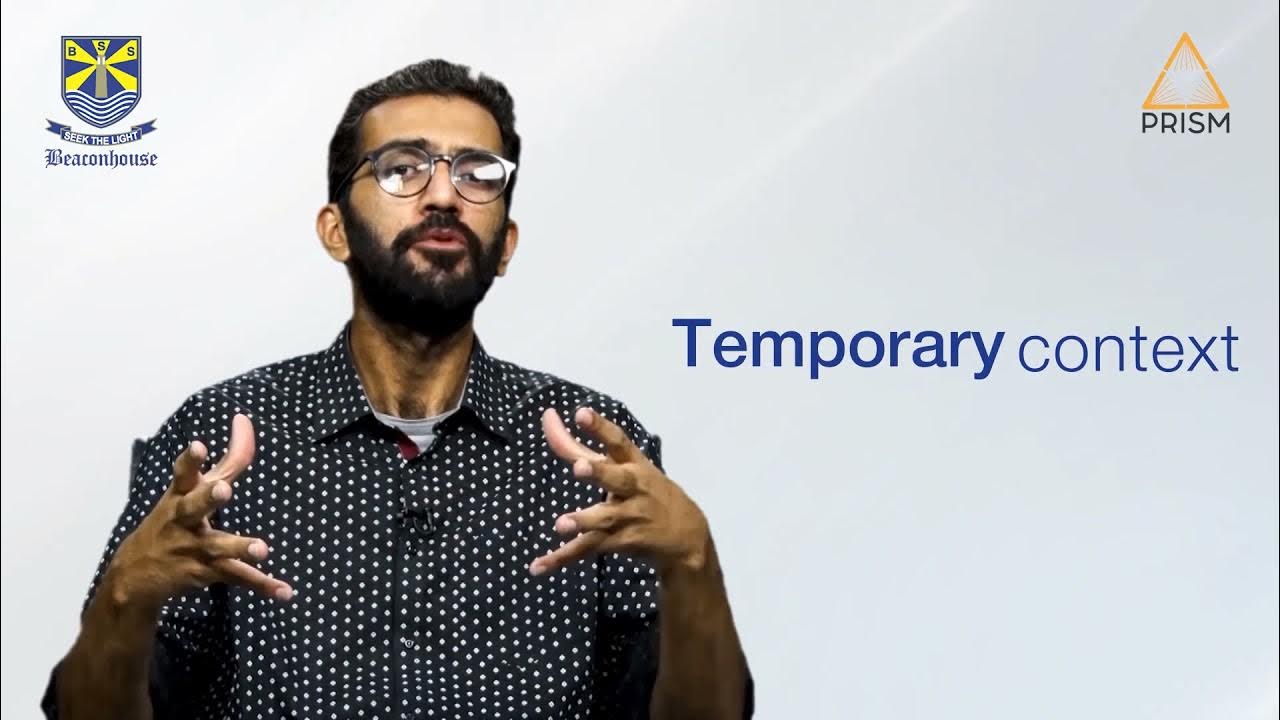Lebenslanges Lernen - Das Konzept kurz dargestellt
Summary
TLDRLifelong learning is essential for personal and professional growth, emphasizing continuous self-directed education throughout life. Originating in the 1970s, this concept has become crucial in the face of globalization and technological changes. The process involves various learning methods, such as auditory, visual, and practical learning, and highlights the importance of resilience, reflection, and hands-on experience. With 90% of Germans believing in the necessity of constant learning for career success, lifelong learning is key to adapting to change and staying relevant in an evolving world.
Takeaways
- 😀 Lifelong learning is essential for personal and professional development throughout life.
- 😀 The European Commission defines lifelong learning as continuous education aimed at improving knowledge, qualifications, and skills.
- 😀 The concept of lifelong learning emerged in the 1970s in response to globalization and the need for individualized education.
- 😀 Lifelong learning is rooted in the constructivist theory, where the learner is at the center and learning is self-directed.
- 😀 Active citizenship and employability are key aspects of lifelong learning, empowering individuals to shape their futures.
- 😀 Adult education, non-formal learning, and self-directed learning are central to lifelong learning initiatives.
- 😀 According to a German survey, 90% of citizens believe continuous education will be crucial for career success by 2030.
- 😀 Nine distinct learning processes accompany people throughout their lives, with each offering different learning methods and experiences.
- 😀 Failure is an essential part of learning, fostering reflection, personal growth, and the development of resilience.
- 😀 Different learning styles, such as auditory and visual learning, play a role in how people acquire knowledge, with methods like e-learning and observational learning aiding the process.
- 😀 Hands-on practice and real-world application are critical for acquiring and updating skills, particularly in professional contexts.
Q & A
What is the concept of lifelong learning?
-Lifelong learning refers to continuous, self-directed learning throughout an individual's life, aimed at improving knowledge, qualifications, and skills. It is important for personal, social, and employment-related development.
What does the European Commission say about lifelong learning?
-The European Commission defines lifelong learning as learning that occurs throughout one's entire life, improving knowledge, qualifications, and skills. It is seen as an educational policy concept developed in response to globalization and individualization.
How was lifelong learning introduced in Europe?
-Lifelong learning was developed in the 1970s as a response to globalization and the evolving needs of the knowledge society. The European Union spread this concept among its member states, focusing on constructivist principles where the learner is at the center of the educational process.
What role does personal responsibility play in lifelong learning?
-In lifelong learning, individuals are responsible for acquiring knowledge and skills that are important to them. This includes personal development, employability, and active citizenship, where each person decides what to learn for personal and professional growth.
What are the main types of learning processes mentioned in the script?
-The script highlights nine forms of learning that accompany people throughout their lives, including learning from failure, coaching, listening, observing, reading, practicing, and hands-on experience.
Why is failure important in the learning process?
-Failure is seen as an essential part of personal development. It highlights limits, but also provides opportunities to overcome those limits, learn from mistakes, and grow. Failure often triggers reflection, which is critical for progress and learning.
How does coaching support the learning process?
-Coaching helps individuals uncover unconscious potential and develop resilience. It supports personal growth by helping individuals reflect on their actions and overcome perceived limits.
What are the benefits of auditory learning?
-Auditory learners absorb knowledge best through listening. They benefit from lectures, e-learning, or conversations where information is verbally explained, helping them acquire new skills and knowledge.
How does observation contribute to learning?
-Observation helps learners, especially visual learners, absorb knowledge by watching how something is done. For example, watching a video tutorial or observing a work process can deepen understanding and reinforce learning.
What is the role of practice in lifelong learning?
-Practice plays a vital role in applying knowledge gained through education. Repetition and hands-on experience, or 'learning by doing,' are key to retaining and refining skills, especially in fields like technical, artistic, or linguistic development.
Outlines

Этот раздел доступен только подписчикам платных тарифов. Пожалуйста, перейдите на платный тариф для доступа.
Перейти на платный тарифMindmap

Этот раздел доступен только подписчикам платных тарифов. Пожалуйста, перейдите на платный тариф для доступа.
Перейти на платный тарифKeywords

Этот раздел доступен только подписчикам платных тарифов. Пожалуйста, перейдите на платный тариф для доступа.
Перейти на платный тарифHighlights

Этот раздел доступен только подписчикам платных тарифов. Пожалуйста, перейдите на платный тариф для доступа.
Перейти на платный тарифTranscripts

Этот раздел доступен только подписчикам платных тарифов. Пожалуйста, перейдите на платный тариф для доступа.
Перейти на платный тариф5.0 / 5 (0 votes)






